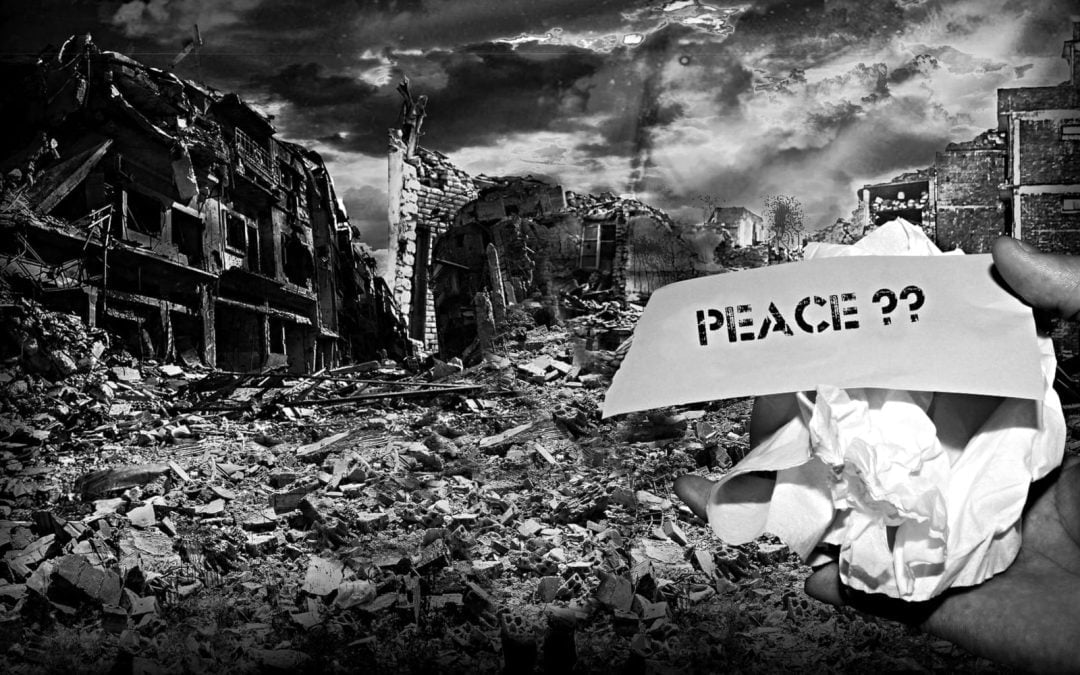Hamas fired nearly 700 rockets into Israel from Gaza on May 4-5.
Four Israeli civilians were killed in the barrages, dozens were wounded, and the lives of many more were shattered.
Hamas and Islamic Jihad aimed their rocket attacks at civilian centers and struck homes, a factory and even a kindergarten and a hospital in the city of Ashkelon.
Those murdered were Moshe Agadi, 58, a grocer and father of four who was hit by shrapnel in Ashkelon; Ziad Alhamada, 49, a Bedouin, who was hit by a rocket in the factory in which he worked in Ashkelon; Moshe Feder, 67, whose car was hit by an anti-tank missile near the Gaza border; and Pinchas Menachem Prezuazman, 21, an American-Israeli killed by shrapnel from a rocket in Ashdod.
On the Palestinian side, there were 23 deaths, 17 were of combatants. In one confirmed case, a misfired rocket exploded inside Gaza and killed a woman and her child, but the Palestinians still blamed Israel.
In 2009, Human Rights Watch, an organization not usually sympathetic toward Israel, offered the following statement about rockets that Hamas fired into Israel from Gaza: “None of these rockets can be reliably aimed. Under international humanitarian law applicable to the fighting between Palestinian armed groups and the Israel Defense Forces (IDF), such weapons are inherently indiscriminate when directed towards densely populated areas.
“The absence of Israeli military forces in the areas struck by the rockets, as well as statements from the leaders of Hamas and other armed groups, indicate that many of these attacks are deliberately intended to strike Israeli civilians and civilian structures. Individuals who willfully authorize or carry out deliberate or indiscriminate attacks against civilians are committing war crimes.”
As in 2009, these most recent rocket attacks were aimed indiscriminately at Israeli civilians while also using Gazans as human shields. If these are not crimes against humanity, I do not know what is!
This is the continuation of a streak of violence, which began in the spring of 2018 with the so-called “March of Return.”
This “march” was anything but a peaceful demonstration somehow implied by the word “return.” In fact, the goal of this march is best understood by Hamas’ own leadership.
Senior Hamas official Mahmoud Al-Zahhar, admitted in an interview to Al Jazeera in May 2018: “When we talk about ‘peaceful resistance,’ we are deceiving the public. This is a peaceful resistance bolstered by a military force and by security agencies and enjoying tremendous popular support.”
Hamas’ Gaza chief, Yahya Sinwar, set out the ultimate goal of the March of Return when in a speech to Gazans, he said, “The March of Return will continue until we remove this transient border. The protests mark the beginning of a new phase in the Palestinian national struggle on the road to liberation and ‘return.’ … Our people can’t give up one inch of the land of Palestine.”
On numerous occasions, terrorists placed bombs next to the fence. During the “March of Return” when the border was not breached, the Palestinians made kites and helium balloons upon which they put incendiary bombs.
These bombs, which were launched into Israel, were responsible for burning more than 7,000 dunams of farmland and nature preserves along the border.
In addition, balloons launched from Gaza with explosives have also landed in Israel.
There’s no doubt that the situation in Gaza is terrible, if not desperate, but let us also remember the following facts:
- Hamas, the Palestinian arm of the Muslim Brotherhood, took over Gaza 12 years ago, consolidating their power through a violent coup one year after elections were held. There have not been elections in Gaza since.
- Prior to the Hamas’ take over, some 100,000 Gazans were crossing the border into Israel every day to work. Until the recent disturbances, more than 300 Israeli trucks were crossing the border bringing goods and necessary supplies to Gaza each day. Hamas commandeered many of these supplies for the purposes of building bunkers and tunnels with the aim of infiltrating Israeli bedroom communities and killing innocents. The Times of Israel reported in 2016 that Hamas spends $100 million annually on military infrastructure, including $40 million on building tunnels.
- The Palestinian Authority (PA) also bears responsibility for the lack of infrastructural investment in Gaza. Last year, the PA paid some $340 million to families of terrorists as compensation for terrorist activities, including murder against Jews. The American and Israeli governments refer to this program as the “Pay for Slay” program.
- The partial blockade of Gaza continues and is certainly justifiably warranted. The primary reason that Hamas lobbies to lift this blockade is to import weapons into Gaza, more weapons that will be used to kill Israelis. As the editor of the Times of Israel, David Horowitz, wrote, “Israel is not going to hand a gun to the murderer next door. What it could use is some help, support and understanding in trying to run the murderer out of town.”
- Because the Palestinian Authority desires to choke Hamas’ control of the Gaza Strip, it stopped paying for electricity for Gaza in 2017 and began reducing salaries for more than 40,000 employees that it had employed in Gaza. Recently, to make matters only worse, the Palestinian Authority, which rules most of the West Bank, refused to accept the tax revenues it is owed by the Israeli government because the Israeli government will not allow those funds to be used to pay the families of convicted terrorists. (“Pay for Slay” – mentioned previously.)
Yes, the situation is terrible. It is also complex. Let’s not forget that at the same time Israel is fighting Hamas’ terror, it also participates generously in international efforts to assist and develop the Gaza Strip.
So why did this flare-up occur at this time? There are many theories.
One was that Hamas and Islamic Jihad wished to create violence before the advent of the holy month of Ramadan, a month that for Muslims is traditionally a time dedicated to peace.
A second was that this was meant to disturb the celebrations of Israeli Independence Day on May 9.
Still another possibly is that this was an effort to force the organizers of the gigantic European song festival known as Eurovision, which is being held this year in Israel, to cancel.
Whatever the cause, the firing of 698 rockets at Israeli civilians does little to promote peace.
Once again, Hamas and Islamic Jihad have shown their sincere commitment to the total destruction of Israel.
Perhaps the former U.S. ambassador to the United Nations, Nikki Haley, said it best when she tweeted on May 4, 2019, “If this was any other country, the international community would raise havoc. No other country would sit back and take this. Why should Israel?”
Editor’s note: A version of this article first appeared in Guttman’s The Times of Israel blog. It was submitted by the author and is used with the author’s permission.


